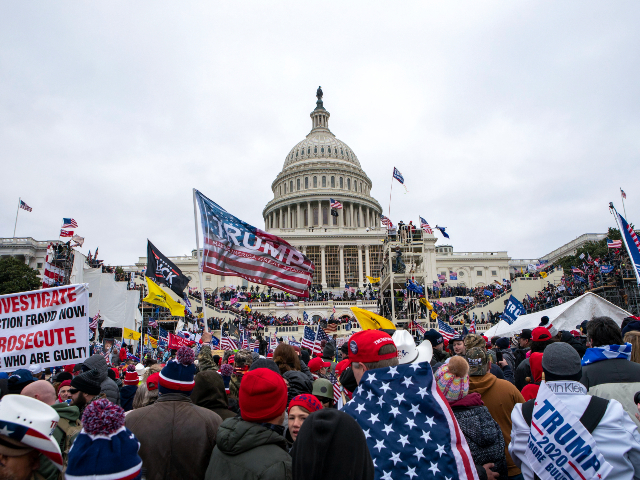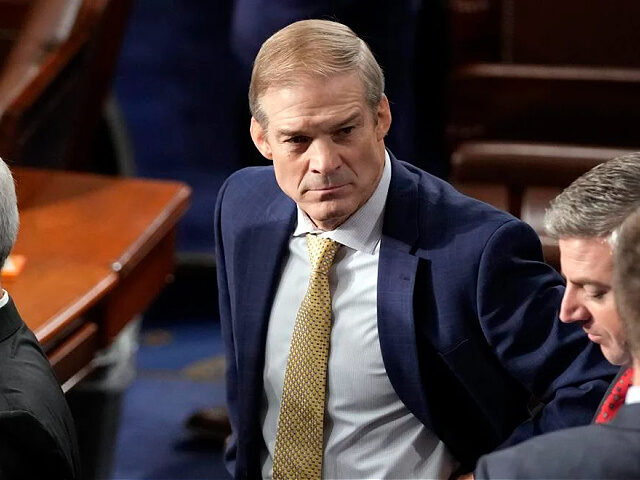House Judiciary Committee Chairman Jim Jordan (R-OH) on Thursday subpoenaed Bank of America (BoA) after the major banks shared American banking information to the FBI without legal process in Washington, DC, around January 6, 2021.
The Judiciary Committee said that BoA, voluntarily and without legal process, provided the FBI with a list of individuals who made transactions in the D.C. area using a BoA debit or credit card between January 5 and 7, 2021.

Support of President Donald Trump rally at the U.S. Capitol on Wednesday, Jan. 6, 2021, in Washington. (AP Photo/Jose Luis Magana)
Steven Jensen, the FBI’s then-Section Chief of the Domestic Terrorism Operations Section, said he acted to “pull” the BoA information from FBI systems because the “leads lacked allegations of federal criminal conduct.”
The committee’s findings contradict the BoA claim that the information provided to the FBI went through a lawful process:
Contrary to these assertions, however, documents on file with the Committee and Select Subcommittee indicate that the FBI—not the U.S. Department of the Treasury—initiated contact directly to BoA, and without legal process. As a result, it is unclear what “legal” process permits the FBI or BoA to share the sensitive customer information of potentially thousands of BoA customers and implicate them in a federal law enforcement investigation without any clear criminal nexus. To that end, BoA’s letter claimed that certain federal laws—namely, the Anti-Money Laundering Act and the Bank Secrecy Act—permit such an arrangement. However, these laws and corresponding regulations primarily contemplate information-sharing with the U.S. Department of Treasury and its components, not external correspondence with the FBI.
…
It should not be the case that federal law enforcement has carte blanche access to Americans’ financial information by deeming a transaction or class of transactions as “suspicious” or otherwise. For that reason, to inform such legislation, it is critical that the Committee understand the full extent of the information-sharing between BoA and the FBI, including review of BoA’s “filing” that it emailed to the FBI.
Bank of America told Politico it “followed all applicable laws in our interactions with the Trump Administration’s Treasury Department and law enforcement.”
This is the latest subpoena in this investigation; Jordan subpoenaed Citibank to “to determine the extent to which financial institutions, such as Citibank, have worked with the FBI to collect Americans’ financial data.”
Massie, a member of the weaponization subcommittee, said during the subcommittee’s May hearing an FBI whistleblower testified that there was no geolocation fencing regarding the datamining of Americans’ purchasing of firearms:
Video Source: C-SPANRep. Dan Bishop (R-NC) said that the BoA’s alleged turning over of Americans’ transactions amounts to “victimization at scale”:
Video Source: Rep. Dan Bishop / TwitterSean Moran is a policy reporter for Breitbart News. Follow him on Twitter @SeanMoran3.

COMMENTS
Please let us know if you're having issues with commenting.